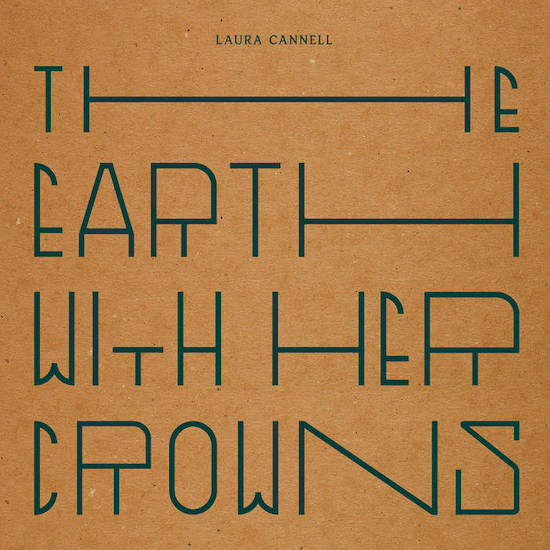With work always, to some degree, rooted in the terrain of her homeland of East Anglia, largely improvised violinist Laura Cannell has continually explored and refined a kind of connective tissue between place and time. Throughout her five preceding solo albums, and across her collaborations with the likes of Charles Hayward, Ex-Easter Island Head and Polly Wright, she has built up a quietly compelling language that’s entirely her own, gossamer threaded by a sense of Englishness that reaches into something beyond iconography, into intangible esoterica and symbolism. Like Richard Dawson, whose Glass Trunk and Peasant tapped into local history in very literal ways to speak to something more universal, Cannell offers a cultural acknowledgement driven by a less fiery brand of national pride.
Commissioned by The Wapping Project, her latest LP, The Earth With Her Crowns was conceived and recorded in the cold early spring at the Wapping Hydraulic Power Station. Recorded in its submerged Boiler House, Coal Store and Filter House, across ten pieces, Cannell ekes out what remains of the latent spirit of the structure, ahead of its now-approved repurposing as office and restaurant space.
At times bucolic, occasionally oppressive, Cannell’s improvisational wisdom and reverence for the past breathes life into long-empty structures. Each piece is fundamentally shaped by its reaction to the reverberant qualities unique to each space within the station, and, although its presence is never overwrought, the knowledge that its two days of recording quickly followed the sudden passing of a loved one informs a pervading sense of yearning throughout. The opening couplet of the title track and ’Waters Deep Cathedral’ form a tentative, feeling introduction, establishing a dialogue between Cannell and the rich harmonic resonances and reverberant qualities of these spaces. Her often sensitive, at times visceral, overbowed violin sees drones underpin humanly imperfect sawing, developing harmonic ideas through each room’s response to her ever-evolving performance.
Then there are moments like ’Memory and Desire’, which owe as much to an atmospheric, contemporary pop sensibility as they do to the pastoral serenity of chamber music and medieval folklore. From these already established musical languages, using its reverberant bed of ambience as counterpoint, Cannell uncovers and builds hooks, motifs, and rhythmic stops. Similarly, the inspired hypnagogia of ’A Space For Dreaming’ flits between decaying, gently incanted vocals and double recorders in oneiric rumination. It’s an affecting performance that can only come from a deep well of intuitive and experientially learned craft. ‘The Black Sleep of Night’, on the other hand, lurches forward with a Sunn O)))-esque sense of dread, pierced by recorder squalls. With percussion credited to a suspended staircase, it trudges slowly and steadily in the distance, like footsteps of some long-forgotten colossus, a recollection of the Victorian-era industrial London that quite literally shaped the sound of this LP.
Cannell said of that album that “It felt like an opportunity to express something at a time when talking had been useless”. An uncommon trait in the field of improvised and gestural music, The Earth With Her Thorns is immediate in its conveyance of quietly ever-present emotional realism – the scale of its vast emptiness never far from the forefront. It’s a welcome accessibility in a style that might be best described as ‘ancient-futurism’, managing never to fall into formalist trappings that many such commissioned works do. As with much of Cannell’s most transcendent work, it’s the act of capturing in permanence that which is transient that proves most cathartic; the spectre of knowing everything else we know is impermanent here, from music, life itself, to the sacred status of structures such as this.


